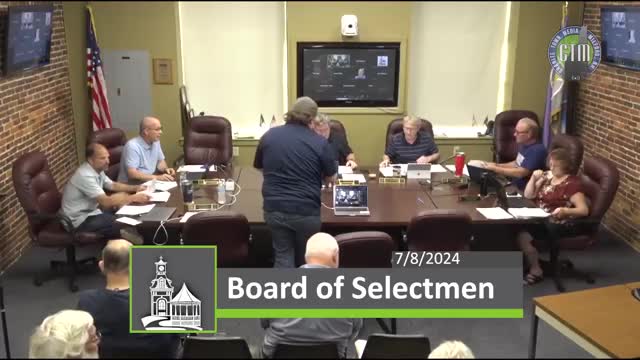Controversy Erupts Over Economic Advisory Committee Appointments
July 08, 2024 | Milford Board of Selectmen, Milford, Hillsborough County, New Hampshire

This article was created by AI summarizing key points discussed. AI makes mistakes, so for full details and context, please refer to the video of the full meeting. Please report any errors so we can fix them. Report an error »

During a recent government meeting, the appointment of members to the Economic Development Advisory Committee (EDAC) sparked significant discussion among board members and community members. The meeting highlighted procedural concerns regarding the selection process for committee members, particularly the absence of a formal recommendation for one candidate, Suzanne Fournier, who expressed her desire to join the committee.
Fournier, a resident and coordinator for Brock's Environmental Citizens, was not included in the list of recommended members provided by the Community Development Office. Board members emphasized their longstanding practice of appointing individuals based on recommendations from relevant committees or department heads. They expressed reluctance to act on Fournier's request without such a recommendation, suggesting that her qualifications could be reconsidered if the committee or department heads chose to endorse her in the future.
The discussion also revealed broader concerns about the inclusivity of the committee's formation. Several board members noted that many small and medium-sized businesses in the community were unaware of the committee's existence and expressed the need for better outreach and advertising to attract diverse candidates. They acknowledged that the current list of appointees appeared to consist largely of familiar names from other boards, raising questions about the diversity of perspectives represented.
As the meeting progressed, members debated the importance of establishing the committee promptly while also ensuring it evolves to include a wider range of voices. Some members argued that the committee's focus should remain on economic development rather than environmental issues, while others contended that a holistic approach, including environmental considerations, is essential for the community's vibrancy.
Ultimately, the board agreed to defer action on Fournier's appointment, emphasizing the need for a structured process moving forward. They acknowledged the importance of starting the committee with the current recommendations while committing to ongoing outreach efforts to ensure broader community participation in the future. The meeting underscored the delicate balance between procedural adherence and the desire for a more inclusive and representative committee.
Fournier, a resident and coordinator for Brock's Environmental Citizens, was not included in the list of recommended members provided by the Community Development Office. Board members emphasized their longstanding practice of appointing individuals based on recommendations from relevant committees or department heads. They expressed reluctance to act on Fournier's request without such a recommendation, suggesting that her qualifications could be reconsidered if the committee or department heads chose to endorse her in the future.
The discussion also revealed broader concerns about the inclusivity of the committee's formation. Several board members noted that many small and medium-sized businesses in the community were unaware of the committee's existence and expressed the need for better outreach and advertising to attract diverse candidates. They acknowledged that the current list of appointees appeared to consist largely of familiar names from other boards, raising questions about the diversity of perspectives represented.
As the meeting progressed, members debated the importance of establishing the committee promptly while also ensuring it evolves to include a wider range of voices. Some members argued that the committee's focus should remain on economic development rather than environmental issues, while others contended that a holistic approach, including environmental considerations, is essential for the community's vibrancy.
Ultimately, the board agreed to defer action on Fournier's appointment, emphasizing the need for a structured process moving forward. They acknowledged the importance of starting the committee with the current recommendations while committing to ongoing outreach efforts to ensure broader community participation in the future. The meeting underscored the delicate balance between procedural adherence and the desire for a more inclusive and representative committee.
View full meeting
This article is based on a recent meeting—watch the full video and explore the complete transcript for deeper insights into the discussion.
View full meeting
